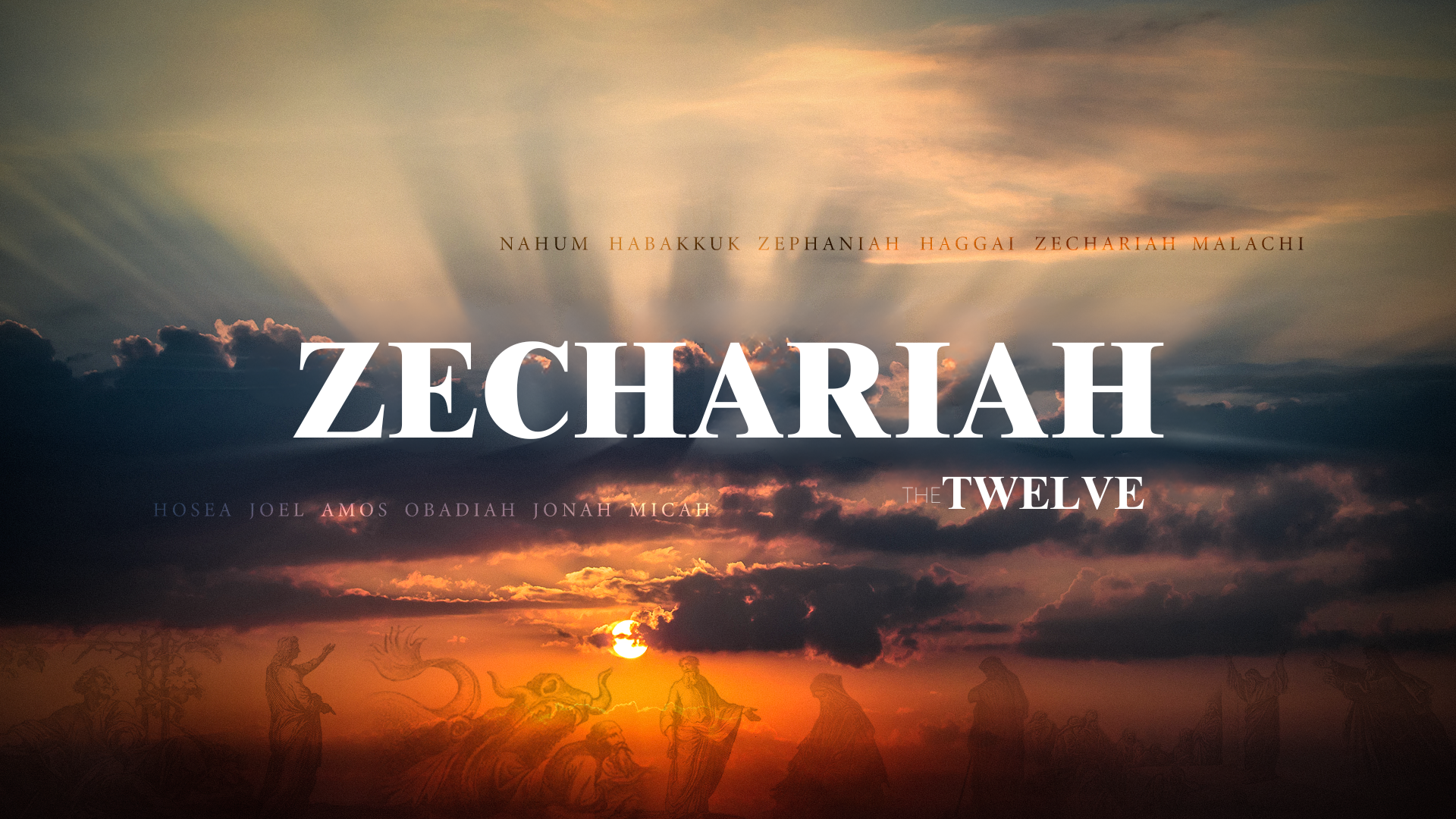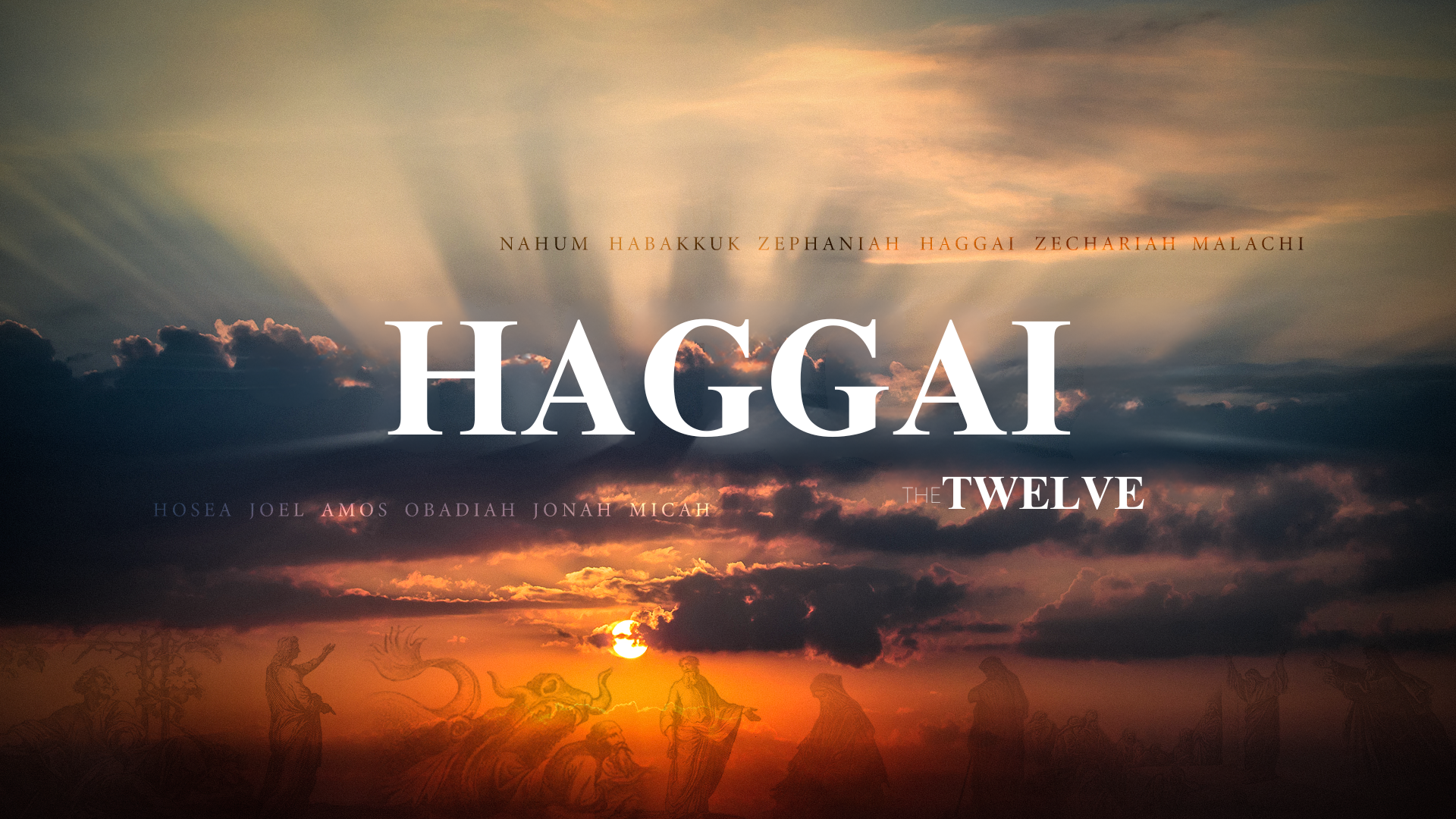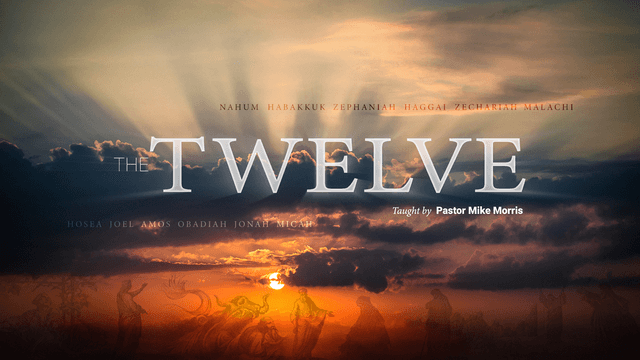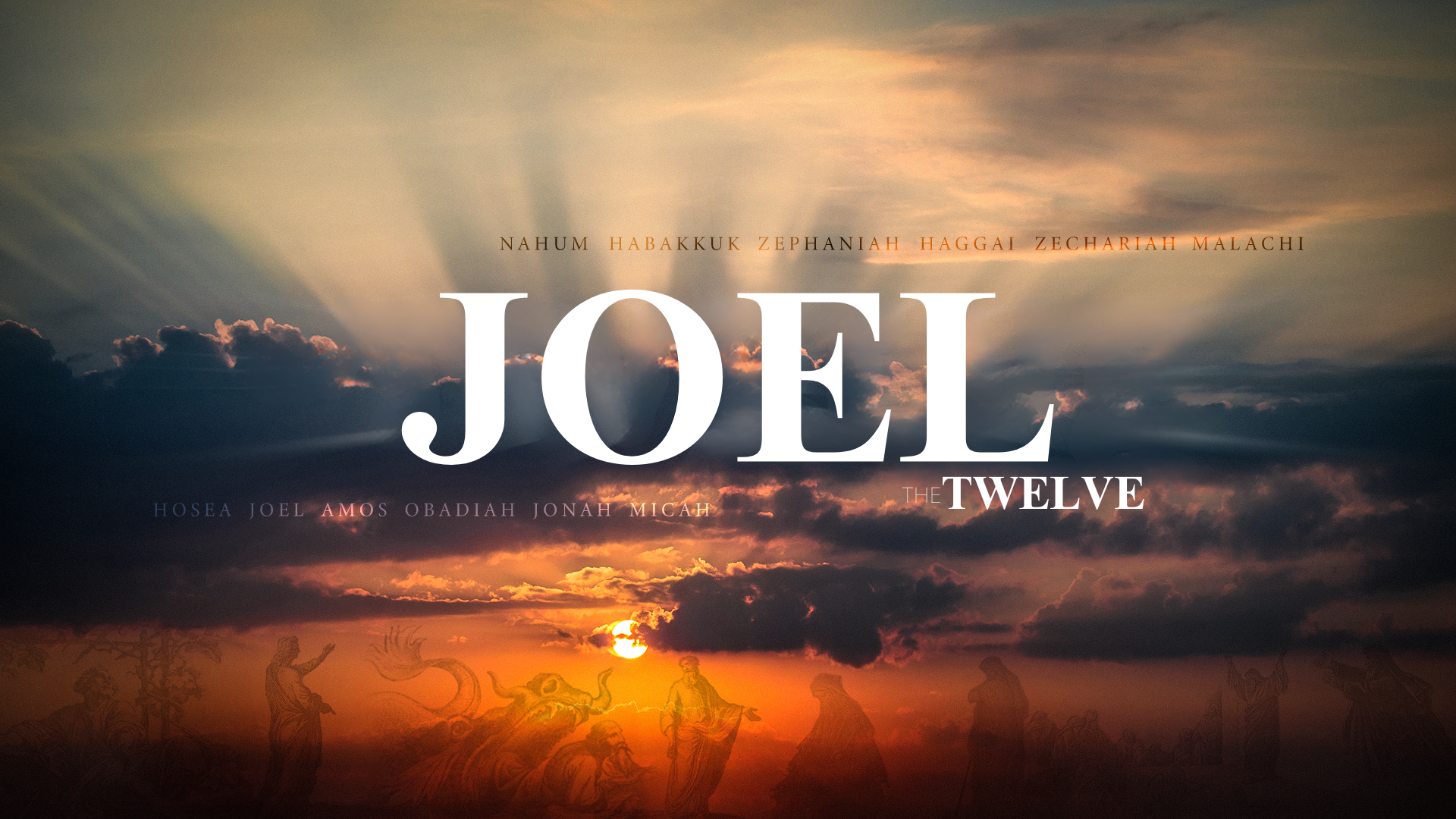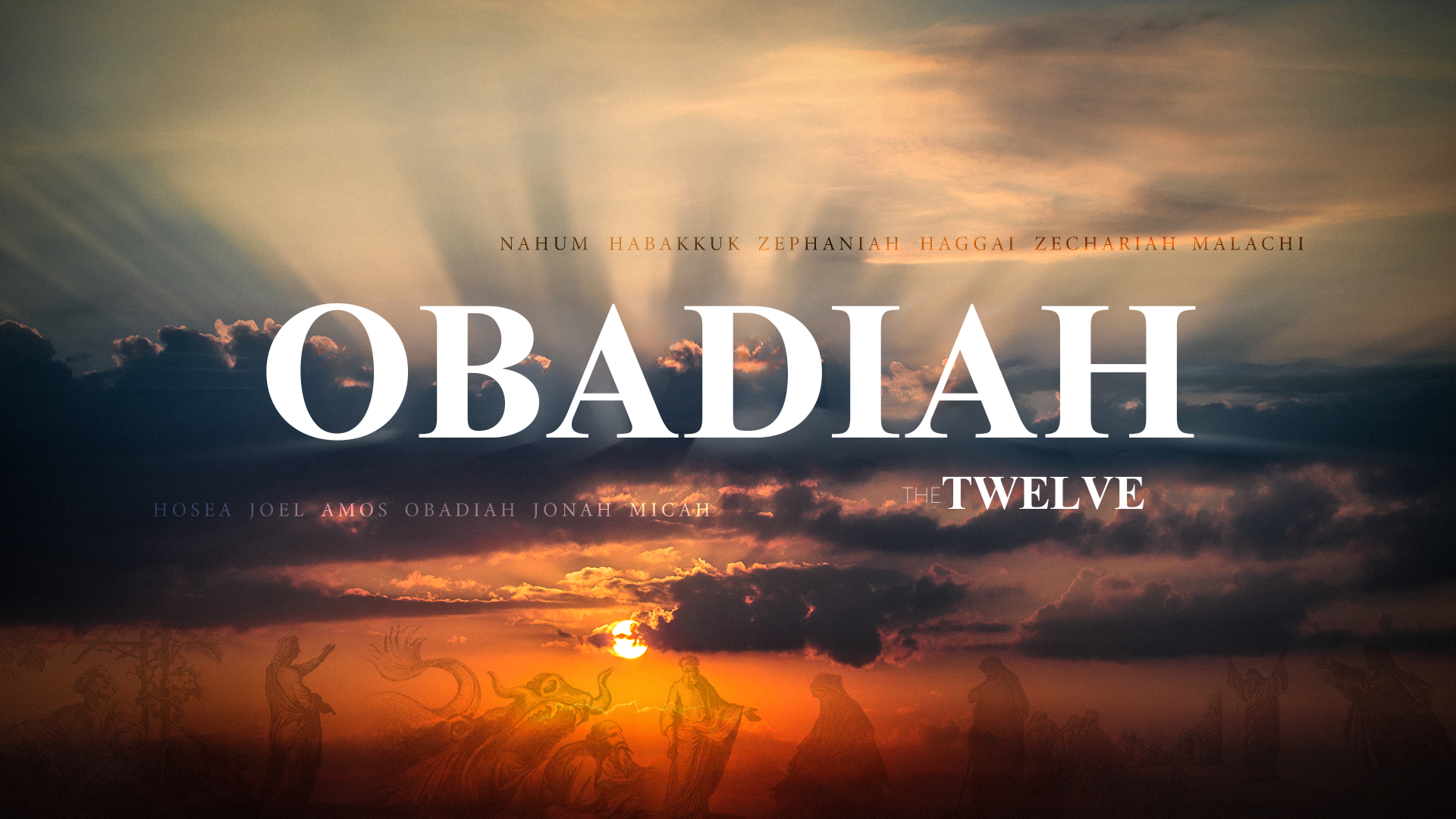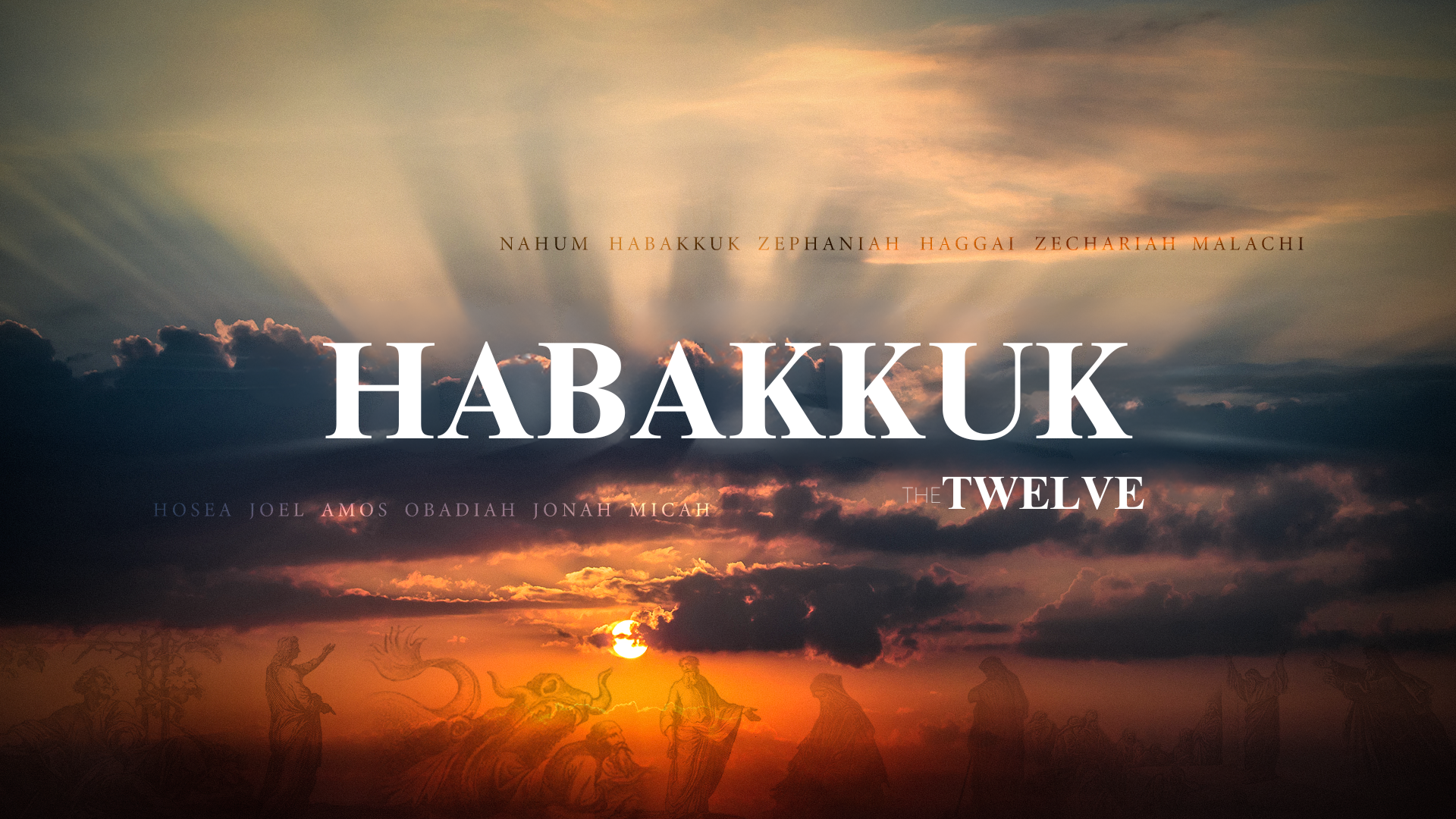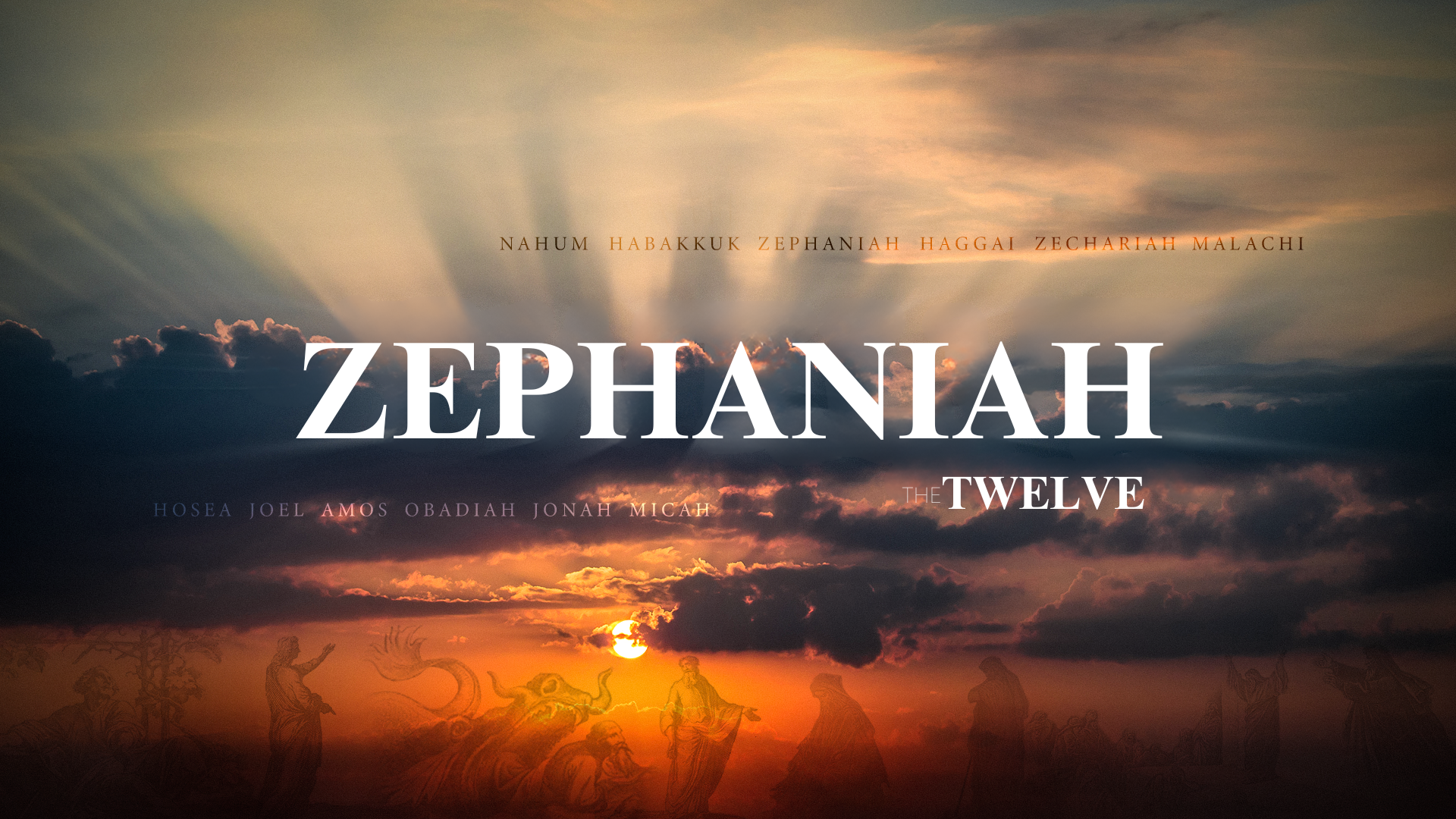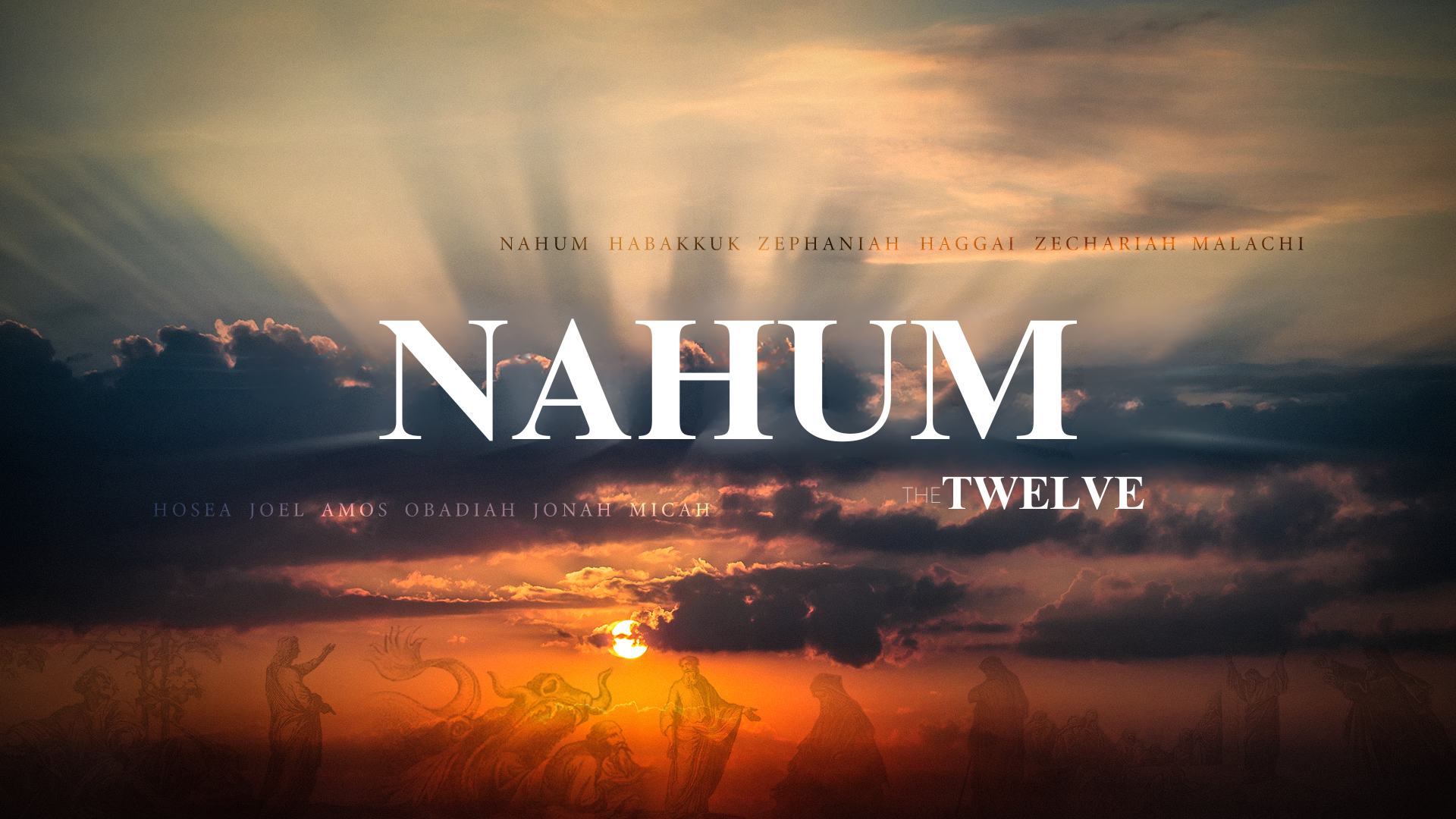INFO
MINISTRIES
TEACHINGS
CONNECT
Sunday Service 9am & 11am
Wednesday Service 7pm
(210) 920-6502
551 E Nakoma St.
San Antonio, TX 78216
MANUSCRIPT
Today we continue our third book in the series “The Twelve”, the book of Hosea...
Last time, we examined chapters eight and nine, and learned what happens to a nation guilty of prideful, arrogant sin...they become self-deceived, self-willed, and ultimately will reap what they have sown...as they have sown the wind, they will reap the whirlwind...now we turn to the next two chapters, and while there is still much judgment prophesied over Israel, Hosea begins also to talk about a way forward for ancient Israel that gives us a similar perspective on how to return to the Lord in obedience...
This passage is more encouraging than some of the rest of the book...even in the midst of the coming judgment that Israel certainly deserved, we’ll see today that the heart and mind of our covenant God is still for us...and while there will be times of discipline, He will not utterly destroy His people
As we go through this passage today, I urge you to special attention to the portions of the text that point to the kindness of the Lord and also why He still shows His faithful covenant love to rebellious Israel...we can learn some important lessons from these truths...we begin today at chapter 10 verse 1...
Israel is a luxuriant vine
that yields its fruit.
The more his fruit increased,
the more altars he built;
as his country improved,
he improved his pillars.
What a puzzling start to the chapter...this is another instance of the word of God comparing Israel to a vine -- one of the main images the word uses for Israel...we see it in other passages, as well...
Jeremiah 2.21 Yet I planted you a choice vine, wholly of pure seed. How then have you turned degenerate and become a wild vine?
The beginning of Isaiah 5 is often called “the song of the vineyard” and again compares Israel to a vine, a “planting”...Isaiah 5.7
For the vineyard of the Lord of hosts
is the house of Israel,
and the men of Judah
are his pleasant planting;
and he looked for justice,
but behold, bloodshed;
for righteousness,
but behold, an outcry!
Psalm 80 also uses the figure of a vine and vineyard to picture the work of the covenant God and the nation...
You brought a vine out of Egypt;
you drove out the nations and planted it.
9 You cleared the ground for it;
it took deep root and filled the land.
10 The mountains were covered with its shade,
the mighty cedars with its branches.
11 It sent out its branches to the sea
and its shoots to the River.
12 Why then have you broken down its walls,
so that all who pass along the way pluck its fruit?
13 The boar from the forest ravages it,
and all that move in the field feed on it.
If this were a “fill in the blank” test, the verse “The more his fruit increased, the more ________________” might be filled in with “he worshipped” or “he obeyed the Lord” -- but instead we find that the more Israel prospered, the more their hearts turned to the false gods of Canaan...their prosperity resulted in more and better idolatrous altars and pillars, places and ways for the Israelites to bow down to the false gods of stone and wood
• The Lord states His judgment in verse 2...
2 Their heart is false;
now they must bear their guilt.
The Lord will break down their altars
and destroy their pillars.
The altars and pillars the people of Israel valued so highly are about to be destroyed
In this verse, “heart” renders Heb ‘lev’ -- the inner man or self, the mind...but “false” is a more picturesque word...Heb ‘ha-laq’ -- meaning smooth or slippery...it’s used in Psalm 5.9, where it’s rendered “flatter”
For there is no truth in their mouth;
their inmost self is destruction;
their throat is an open grave;
they flatter with their tongue.
That’s how Hosea describes the hearts of the Israelites...false, deceitful, smooth and slippery, like the wet stones in the bottom of a creek...you think they are stable and secure footing, but when you place your foot on them, they betray you and down you fall into the water...the heart of Israel is not true to the Lord their God...as a result, the Lord will break down their altars and destroy their pillars...
3 For now they will say:
“We have no king,
for we do not fear the Lord;
and a king—what could he do for us?”
4 They utter mere words;
with empty oaths they make covenants;
so judgment springs up like poisonous weeds
in the furrows of the field.
Do you recall the false repentance of chapter six? Now we hear the truth...”we do not fear the Lord”...their words carry no truthful meaning, their covenant promises are empty...and like the deceit in their hearts, so judgment pops up like weeds in a field...Israel will be judged...this is the state of a nation which rejects the authority of God
That judgment will include destruction of the idolatrous altars and idols of Israel...and Hosea speaks to the grief that will bring upon the people of the nation...I’ll admit, this passage is difficult in the sense that it’s hard for many of us to understand how people could genuinely love and revere a golden calf, a false god, an idol...but Hosea tells us that the people truly mourned for its loss...and he prophesies the ultimate end of, as he puts it, the “calf of Beth-Aven” -- Israel will have to give the golden calf to Assyria as tribute -- forced payment -- certainly as part of the destruction and exile of the nation...
5 The inhabitants of Samaria tremble
for the calf of Beth-aven.
Its people mourn for it, and so do its idolatrous priests—
those who rejoiced over it and over its glory—
for it has departed from them.
6 The thing itself shall be carried to Assyria
as tribute to the great king.
Ephraim shall be put to shame,
and Israel shall be ashamed of his idol.
But the judgment of Israel for their sin will be yet more complete...
7 Samaria's king shall perish
like a twig on the face of the waters.
8 The high places of Aven, the sin of Israel,
shall be destroyed.
Thorn and thistle shall grow up
on their altars,
and they shall say to the mountains, “Cover us,”
and to the hills, “Fall on us.”
Their leadership shall fall, as unstable as a twig on the surface of a swiftly flowing river, the high places will be destroyed...the locations of idol worship on every high hill and under every green tree...those altar locations will be overtaken by weeds and left desolate and uninhabited...and the people will wish for deliverance or even death...that would be preferred by them to being taken into exile to the distant reaches of the Assyrian Empire...
But note the last part of verse 8...the cries of the people to the mountains to “cover us” and to the hills to “fall on us” ... if that sounds familiar, it’s because Jesus refers to this passage in Luke 23.30 as He walks the Via Dolorosa, the Way of Suffering, having just given the cross to Simon of Cyrene...
We have to ask the question, why would Jesus, in that terrible moment, think back to this fairly obscure verse in Hosea?
He connected the suffering of Israel in the days of the Assyrian conquest with the suffering Israel would experience in the days of the fall of Jerusalem, as the Romans crushed the city in AD 70...suffering so severe that it would reverse the typical Jewish perspective on children...in times of suffering like this, pregnancy and childbirth are not a blessing, but instead to be avoided, if only so no more children were birthed into such a terrible time of judgment...in both the days of Hosea and in the days of the conquest of Jerusalem, it would be better to be crushed by a mountain than to remain alive and suffer the judgment of God...for Jesus to compare the suffering experience of the northern kingdom of Israel to the suffering experience of Jerusalem in the first century highlights for us how terrible life really was as the Assyrians conquered Samaria and the whole of Israel...
God continues to speak in verse 9...
9 From the days of Gibeah, you have sinned, O Israel;
there they have continued.
Shall not the war against the unjust overtake them in Gibeah?
10 When I please, I will discipline them,
and nations shall be gathered against them
when they are bound up for their double iniquity.
Hosea returns to the mention and metaphor of Gibeah...as we noted last week, Gibeah was the scene of a desperately wicked and sinful culture, but it was also a fortress city under David, which had since fallen into disrepair under the failed leadership in the north...here Hosea links Gibeah to both rampant and continuing sin, but also military might, which would soon betray and fail the kings of Israel as they fell to Assyria...
And they learned what we already know, too...the Lord is on His own timeline...discipline was coming when the time was right in His eyes, not theirs...
On to verse 11...
11 Ephraim was a trained calf
that loved to thresh,
and I spared her fair neck;
but I will put Ephraim to the yoke;
Judah must plow;
Jacob must harrow for himself.
Here we see another triplet, so common in Scripture when we learn to look for them...the message is that both north and south, and Israel as a whole, would no longer be given the freedom they had enjoyed and wasted, but would instead be put to hard labor...the Lord God had spared Ephraim’s neck thus far, but that was about to change...difficult times were ahead for both Israel and Judah
Now we come to the heart of this chapter...God’s call to return to Him...and a renewal of the metaphor of sowing and reaping we examined last week, this time in a positive way...
12 Sow for yourselves righteousness;
reap steadfast love;
break up your fallow ground,
for it is the time to seek the Lord,
that he may come and rain righteousness upon you.
13 You have plowed iniquity;
you have reaped injustice;
you have eaten the fruit of lies.
Hosea speaks to Israel as a counselor, giving them sound advice...sow for yourselves righteousness...Heb ‘sedaqah’...meaning honesty, justice, moral uprightness...if the Israelites were to sow those qualities into their individual and corporate lives, they would reap ‘hesed’ -- God’s covenant love, steadfast and true...but it will require breaking up “fallow ground”
“Fallow ground” is a term not everyone will understand at first, unless you’re a farmer...fallow ground is untouched soil, either never cultivated or more likely not cultivated in a long time...it is soil that has grown over with native vegetation, has been hardened by wind and rains, and has formed a crust, unyielding, almost solid...very different from plowed and cultivated soil which is able to grow a bountiful crop
That’s why Hosea, and farmers of all times and places, use the term “break up” -- because to transform fallow ground into fertile soil, you have to break it -- break through the crusty surface, usually with a plow, to dive deep into the soil, turning it up and over, exposing what had lain dormant for years...fallow ground isn’t to be understood as poor soil, unfit for cultivation...it’s just soil that hasn’t been used or broken up in a long while...
You see the truth here...the spiritual soil of Israel had lain fallow for generations...untouched by any desire to follow the living covenant God, crusted over by idolatrous worship of the false Canaanite gods...now Hosea calls upon the people to break it up, let the plow turn it over, prepare the soil of their hearts for the seed of the righteousness of God, that they might reap the good harvest of his steadfast love...
Hosea has a clear message for the norther kingdom: it is the time to seek the Lord...the singular modifier “the” is in the Hebrew...a defined moment, the chosen or suitable time...even in an oracle dominated by promises of judgment, there appears this moment of possibility, a fitting time to seek the Lord God...and if the people, and their leaders, choose to do that, to seek their God, then He will “rain down” righteousness on them...the verb here is well-chosen...farmers can break up fallow ground, and plant seed, and cultivate the fields, but the one thing they cannot do is make it rain...God’s promise is that if the nation would seek Him, He would make it rain...as the prophet Jeremiah wrote to Judah, the same could be true for Israel, if they would obey the Lord...Jeremiah 29.13
13 You will seek me and find me, when you seek me with all your heart.
But it will require the Israelites to repent and change...for until now, they had only persisted in sin...
13 You have plowed iniquity;
you have reaped injustice;
you have eaten the fruit of lies.
The farming metaphor continues, but returns to Israel’s practice of sin...and Hosea also returns to his habit of saying things in threes...iniquity, injustice, and the fruit of lies...and this was entirely true in the experience of the northern kingdom...they had plowed iniquity, both in sins to God and in sins to man...and their society was filled with the injustice they reaped from their sowing of sin...and the only crop they received was the fruit of lies
Because you have trusted in your own way
and in the multitude of your warriors,
14 therefore the tumult of war shall arise among your people,
and all your fortresses shall be destroyed,
as Shalman destroyed Beth-arbel on the day of battle;
mothers were dashed in pieces with their children.
15 Thus it shall be done to you, O Bethel,
because of your great evil.
At dawn the king of Israel
shall be utterly cut off.
We don’t know exactly the geographic references here, but scholars believe the person of Shalman and the location of Beth-Arbel are associated with Moab...Hosea’s hearers would have known what he meant...the truth is evident enough...unless they repented, Israel would suffer complete devastation
Now in chapter ten, the focus and speaker changes as God Himself speaks with words of great tenderness...
When Israel was a child, I loved him,
and out of Egypt I called my son.
We see this short verse quoted in Matthew 2.14-15 with reference to Jesus Christ...
14 And he rose and took the child and his mother by night and departed to Egypt 15 and remained there until the death of Herod. This was to fulfill what the Lord had spoken by the prophet, “Out of Egypt I called my son.”
God reminds the people of Israel of His faithfulness and love in their past...their rescue from bondage in Egypt, and His steadfast love as He led them through the wilderness wanderings, feeding them from His own Hand with manna, the bread of Heaven, and providing them with water in the desert...and even as they remained in the wilderness for forty years as judgment for their faithlessness, He still provided all they needed...and yet what was the response of the people to the kindness and goodness of God?
2 The more they were called,
the more they went away;
they kept sacrificing to the Baals
and burning offerings to idols.
In this next passage, as much as anywhere in Scripture, we hear the heart of God as Father...remembering Israel’s early days, much as fathers remember caring for their young children...
3 Yet it was I who taught Ephraim to walk;
I took them up by their arms,
but they did not know that I healed them.
4 I led them with cords of kindness,
with the bands of love,
and I became to them as one who eases the yoke on their jaws,
and I bent down to them and fed them.
All of us, I’m sure, as children were not aware of all the ways our parents loved us and cared for us...provided for us and taught us...always imperfectly, since we are but humans, but the pattern for parents is to love and care for their kids...to hold them up, teach them to walk, to live...look at verse 4...it’s the love and kindness of God that bind us to him...His care and compassion sustained the people of ancient Israel through their most difficult times, just as His care and compassion sustain us today...
And yet parenting isn’t all cuddles and hugs...fathers have to discipline their children, too...
5 They shall not return to the land of Egypt,
but Assyria shall be their king,
because they have refused to return to me.
6 The sword shall rage against their cities,
consume the bars of their gates,
and devour them because of their own counsels.
7 My people are bent on turning away from me,
and though they call out to the Most High,
he shall not raise them up at all.
The people of Israel would suffer because of their persistent bent toward sin...despite all the Lord God had done to convince them of His love and kindness and compassion, they turned away...they refused to return to the Lord, and they would suffer the consequences of that misguided and sinful choice
But even in their suffering and exile, God is yet gracious and filled with compassion...listen to His words through the prophet...
8 How can I give you up, O Ephraim?
How can I hand you over, O Israel?
How can I make you like Admah?
How can I treat you like Zeboiim?
My heart recoils within me;
my compassion grows warm and tender.
9 I will not execute my burning anger;
I will not again destroy Ephraim;
for I am God and not a man,
the Holy One in your midst,
and I will not come in wrath.
The truth is this: God loved Ephraim...He loved His people, Israel, despite their sin and rebellion...it broke His heart to think of the suffering that the needed discipline would bring to the people of Israel...but He could not bear the thought of utterly destroying them...
The references to Admah and Zeboiim are from Genesis 19.24-25, the story of the destruction of Sodom and Gomorrah...here’s where they are located...(SLIDE)
24 Then the Lord rained on Sodom and Gomorrah sulfur and fire from the Lord out of heaven. 25 And he overthrew those cities, and all the valley, and all the inhabitants of the cities, and what grew on the ground.
Admah and Zeboiim were just two of the “cities of the plain,” the valley extending southward from the Dead Sea, that were destroyed along with Sodom and Gomorrah
The Lord will certainly discipline His people, but He will not overthrow them, utterly destroy them in His wrath...why? Because He was the Holy One in their midst, God and not man...thank the Lord for that...
10 They shall go after the Lord;
he will roar like a lion;
when he roars,
his children shall come trembling from the west;
11 they shall come trembling like birds from Egypt,
and like doves from the land of Assyria,
and I will return them to their homes, declares the Lord.
12 Ephraim has surrounded me with lies,
and the house of Israel with deceit,
but Judah still walks with God
and is faithful to the Holy One.
Ultimately, the Lord God would again look upon Ephraim with compassion...He would return them to their homes, despite their sin...and note the end of verse 12...as Hosea was writing this, Judah still was faithful to the covenant God...but we know that in time, even Judah fell away and suffered exile as well
Despite the patience and kindness of God, Israel ultimately did not repent...they did not return to the Lord...they did not break up their fallow ground and sow righteousness...and they did suffer the consequences as Assyria became their king, instead of the Lord God
And we know, don’t we, that the study of Scripture is never meant to be just an academic or intellectual exercise...we understand that God has given us His word in order to confront us with His truth and bring us to the point of change, of obedience to Him, to be doers of the Word, not just hearers only...
So when we see how God related to Israel, we need to look at ourselves and see what the Spirit is saying to us...let’s review this passage today...
When God blesses us, what do we do next? Spend it on ourselves and our pleasures, much as the Israelites built more altars and pillars for idolatry, or do we honor Him with the bounty He gives, using it for His glory and purposes?
Are our hearts true and honest before the Lord, or would He declare us “false” -- slippery and smooth, deceitful and misleading?
Do we fear the Lord? Regard Him with honor and respect? Or like the Israelites, have we somehow lost our reverence for our God, becoming guilty of that sin, much as Paul confronted the first century world in Romans 3.18
“There is no fear of God before their eyes.”
And will we heed the command of God to sow and reap unto Him?
12 Sow for yourselves righteousness;
reap steadfast love;
break up your fallow ground,
for it is the time to seek the Lord,
that he may come and rain righteousness upon you.
There is fallow ground in all our hearts...spaces and times that we haven’t broken up and given over to the Holy Spirit for Him to raise up a harvest of steadfast love to the Lord...there are places that we’ve kept reserved for our own use, not yielding access to the Spirit...and what happens to us? We harden, become of little use to Him, turned inward, pleasing self instead of pleasing God...but we can still hear His call to return to Him, and break up the fallow ground of our hearts and minds, and cultivate the fruit of the Spirit to the glory of God...for as Hosea reminds us in chapter 10 verse 12, it’s “the time,” the right and appropriate time, to seek the Lord...we hear the echo of this truth in Matthew’s gospel, chapter 6, verse 33...
33 But seek first the kingdom of God and his righteousness, and all these things will be added to you.
Will we, like the Israelites, trust in our own way, or will we turn from that sin and trust the Lord? Will we obey the word in Proverbs 3.5
Trust in the Lord with all your heart,
and do not lean on your own understanding.
And finally, unlike Israel, will we remember who our Father is...who has blessed us and provided for us and lovingly cared for us...will we honor and revere Him, diligently walking in His ways?
For the people of God today, as for ancient Israel, there is a choice...not of whose we are, but of how we shall live...are we committed to obeying the Lord in all things, honoring Him, and seeking His face, or will we turn inward, to ourselves, away from others and from our God? Will we honor and revere and worship our Father God, or will we deny Him? That’s our choice to make...may we consider our choice well.

Taught by Mike Morris
Associate Pastor of Verse By Verse Fellowship
The Twelve Series
